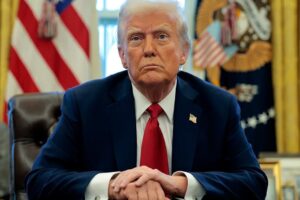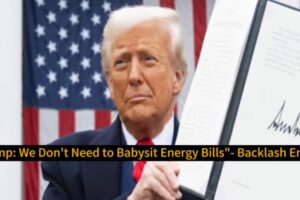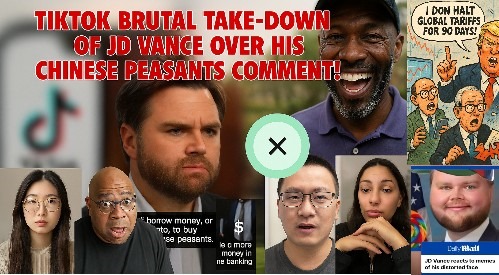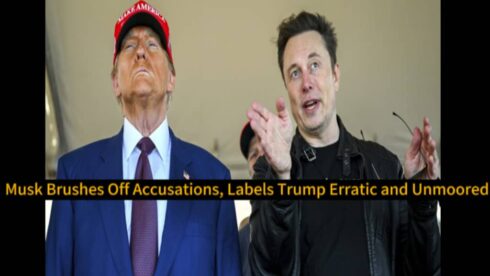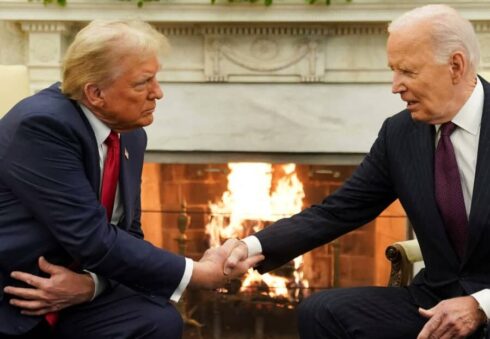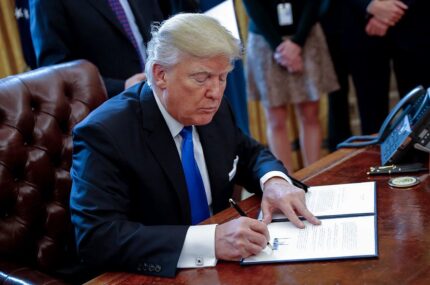TikTok Roasts VP | U.S. Vice President J.D. Vance has found himself at the center of a firestorm following his recent remarks on Fox & Friends, where he described Chinese citizens as “peasants” in a broader argument supporting President Trump’s latest tariffs on Chinese imports. While intended to paint China as a threat to American prosperity, Vance’s words triggered an international uproar—particularly across TikTok and Chinese social media.
The controversial label not only drew fierce criticism for being outdated and derogatory but also struck a nerve given the rising tensions in U.S.-China relations. The backlash has reignited debates about classism, hypocrisy in political rhetoric, and the Trump administration’s growing disregard for global diplomacy and working-class sensitivities.
TikTok Roasts VP: Satire, Outrage, and Viral Videos
TikTok Roasts VP | The most immediate and explosive response came from TikTok users, where Vance’s comments were dissected, mocked, and turned into viral content. One 30-second AI-generated video that garnered millions of views portrayed overweight American factory workers in grim settings, synchronized with traditional Chinese music. The video served as a sharp satire of the “Make America Great Again” slogan and laid bare the irony of American manufacturing decline amid aggressive tariffs.
Another trending clip showed Chinese infrastructure triumphs—sleek high-speed trains, bustling tech parks, and electric vehicle rollouts—juxtaposed with crumbling U.S. roads and Rust Belt towns. TikTok users flooded the comment sections with biting sarcasm: “If peasants built this, what do we call ourselves?”
This digital storm not only showcased social media’s power in shaping narratives but also exposed the generational and ideological gaps between political leaders and younger, globally aware citizens.
TikTok Roasts VP | Chinese Social Media Fires Back
TikTok Roasts VP | On the other side of the world, Chinese platforms like Weibo exploded in outrage. Vance’s remarks became a top trending topic, clocking over 140 million views within hours. Influencers, academics, and even former diplomats condemned the statement as “ignorant,” “arrogant,” and “disconnected from reality.”
Many highlighted the irony in Vance’s words, given his own humble Appalachian roots—a story he chronicled in his memoir Hillbilly Elegy. Weibo users were quick to point out this hypocrisy: “You call yourself a voice for the forgotten poor of America, but mock our journey from poverty to innovation?”
The Chinese Foreign Ministry also weighed in indirectly, calling for “respect in diplomacy” and warning that such language only reinforces “toxic nationalism.”
TikTok Roasts VP | When Empathy Turns Hypocritical
J.D. Vance built his political identity on advocating for America’s working-class communities. In Hillbilly Elegy, he urged elites to understand—not belittle—those living in economic hardship. Yet, with one phrase, he seemed to abandon that ethos entirely.
TikTok Roasts VP | Critics from across the political spectrum have called out this contradiction. Progressive commentators pointed out that reducing over a billion people to a single demeaning label betrays Vance’s supposed principles. Meanwhile, conservative voices expressed concern that such careless rhetoric undermines the administration’s credibility in foreign affairs.
“He wants dignity for Ohio coal miners, but none for Chinese workers?” asked one op-ed in The Atlantic. “That’s not patriotism. That’s selective empathy.”
The Political Fallout: Rhetoric Meets Reality
TikTok Roasts VP | Vance’s remark is more than a gaffe—it’s a symptom of the Trump administration’s increasingly provocative posture toward China. In recent weeks, the U.S. slapped sweeping tariffs on Chinese goods, and Beijing responded with an 84% tariff wall of its own. Vance’s language added fuel to the fire, complicating diplomatic efforts and increasing market instability.
Foreign policy analysts warn that inflammatory language could sabotage back-channel negotiations aimed at calming tensions. “This kind of rhetoric plays well on cable TV, but it plays terribly in a geopolitical chess game,” noted Dr. Amy Han of the Brookings Institution.
Some in the GOP are reportedly uneasy about the optics. With an election year looming, the last thing they want is to alienate Asian American voters or further destabilize U.S. trade relationships.
The Meaning of “Peasant”: Reclaiming or Reducing?
TikTok Roasts VP | Interestingly, a portion of online users—both Chinese and Western—argued that being called a “peasant” isn’t inherently offensive. “Peasant just means a hard-working, honest rural person,” one TikTok user wrote. “It’s how China rose—through discipline, labor, and resilience.”
Still, context matters. Coming from a high-ranking U.S. official during a sensitive trade standoff, the word carried colonial undertones and reinforced outdated power dynamics. “It’s not about the word itself—it’s about who says it and why,” explained cultural critic Liang Zhao in a CNN interview. “Language has weight, especially in international politics.”
The debate over semantics only added complexity to an already tangled controversy, forcing many to reflect on the class and cultural biases embedded in political discourse.
Tariffs, Trade, and TikTok: The Bigger Picture
TikTok Roasts VP | Beyond the social media buzz, the uproar signals deeper cracks in U.S.-China relations. The trade war has already disrupted global supply chains, raised consumer prices, and rattled investors. Vance’s comment, while perhaps a throwaway line, may have lasting economic and diplomatic consequences.
As Chinese tech firms pivot away from U.S. partnerships and bolster ties with the Global South, analysts worry that the U.S. is isolating itself. Meanwhile, TikTok—the very platform through which this backlash spread—remains under U.S. government scrutiny, with some lawmakers still pushing for an outright ban.
Ironically, the very tool being accused of Chinese influence is now being used by Americans to criticize their own leaders.
TikTok Roasts VP | An Administration Out of Touch?
To many, the controversy highlights a recurring theme within the Trump-Vance administration: a disconnect from the lived realities of ordinary people, both at home and abroad. Whether it’s belittling foreign workers or downplaying the impact of tariffs on low-income Americans, the message appears clear—rhetoric over responsibility.
TikTok Roasts VP | In a political era where image and perception can change overnight, Vance’s words serve as a cautionary tale. For a vice president who once demanded compassion for the downtrodden, his failure to extend that same grace to others may be remembered as more than a political misstep—it may be remembered as a betrayal of his own ideals.
As one viral TikTok user put it: “If peasants built China’s future, maybe it’s time our leaders stop mocking them—and start learning.”






